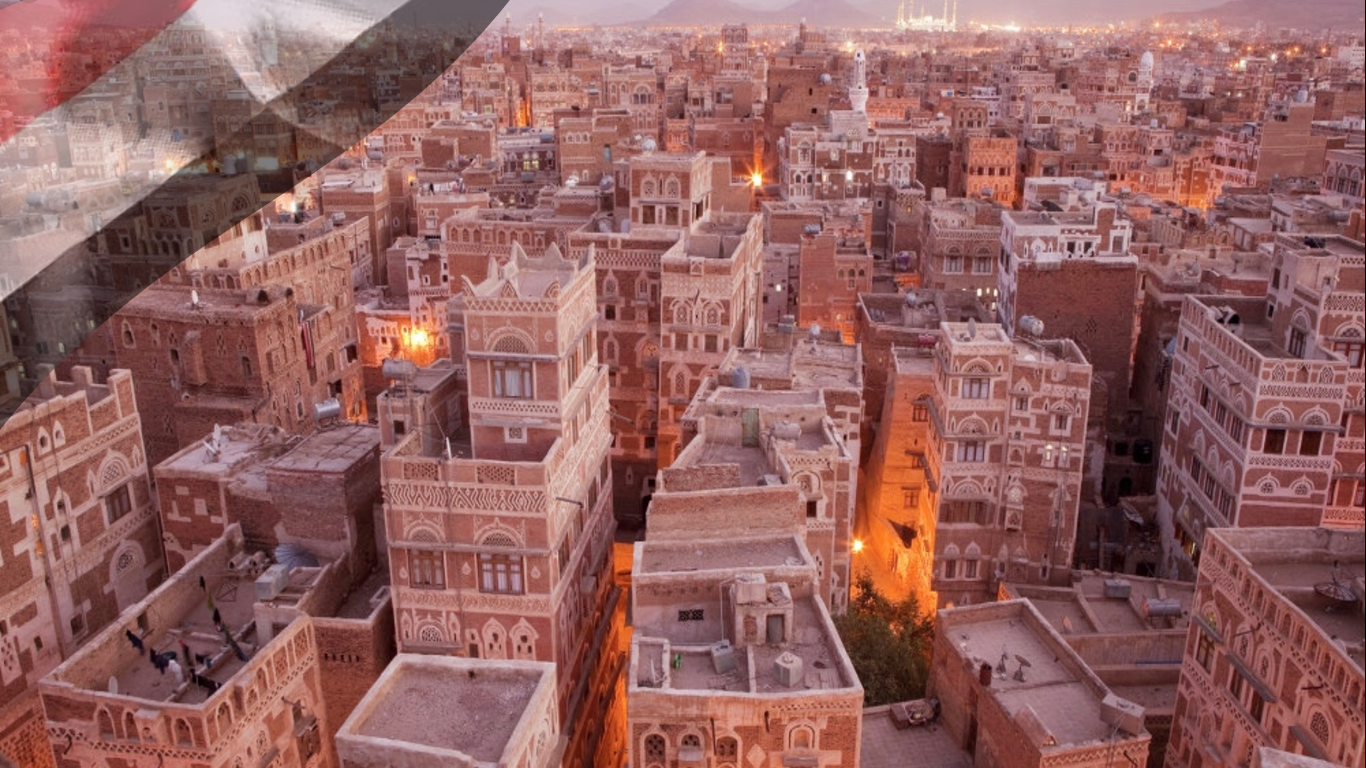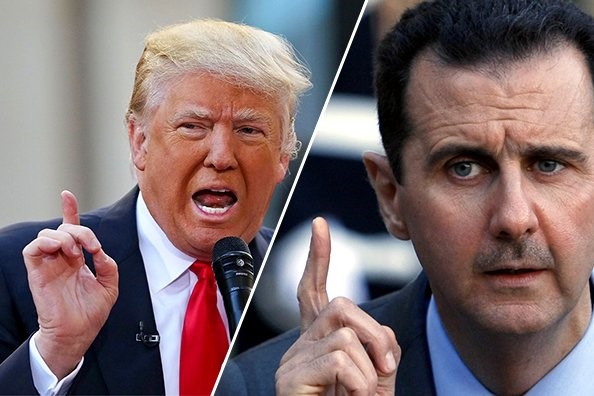Syria, which was one of the last countries to be hit by the so called “Arab Spring” back in 2011 for years ruled the news. In one hand for the bloody events, in another for the speculations for yet another American instigated regime change, like it happened in Iraq and Libya, and in time for other more pressing concerns for the Western public, like the rise of Dā‘iš and the migrant crisis, which latter was blamed on the Syrians. The Russian intervention in September 2015 certainly changed the game, and since than the Syrian Army by liberating most areas of the country managed to turn the table around. It seemed that with the Sochi accords in 2018 the war entered its last phase, after which Idlib and the eastern parts stay only contested, but yet isolated and finally political process can take over from the armies. With that seeming calm came growing disinterest by the Western media over Syria. Though occasionally the major Western outlets cried out, whenever the Syrian Army pushed to liberate areas under terrorist control, the Syrian folder slowly disappeared from the headlines.
In a way that is understandable. The incursions by the terrorist in Idlib are still severe on the Ḥamā countryside and on Aleppo itself, the scale is indeed much smaller than it was even two years ago. On the other hand with the ongoing, relatively small scale operations back and forth around the Idlib de-escalation zone, it seemed the whole struggle reached a dead end and not progressing. Also, much bigger events, like the “deal of the century” and tension in the Gulf took the better of the attention.
Yet recently major indications point to a new direction and suggest that it might not show yet, but something is already in motion. Ahead of the new round of the Astana talk the Syrian Army managed to make important, yet seemingly not impressive gains in the Idlib front. The security apparatus was reformed, at least in the leadership, which gave raise to many speculations. And finally the last American ambassador to Syria, Robert Ford brought big attention upon himself with his remarks given to the Saudi Asharq al-Awsat newspaper and to the Lebanese al-Mayadeen channel revealing that Washington still has big plans in motion. Not only for Syria, but also for the regional map in general.
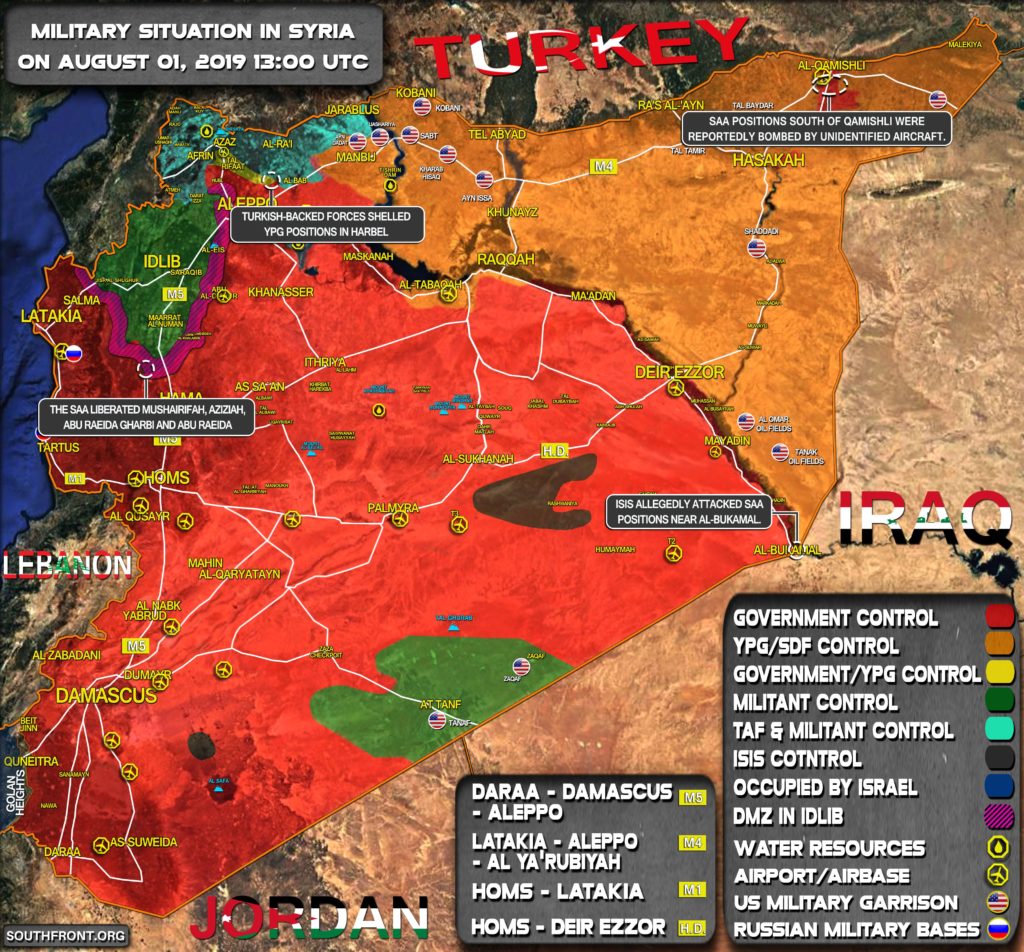
Where Idlib matters
Since the Syrian Army managed to liberate the areas around the capital and the south only three areas remained contested. Idlib, the eastern bank of the Euphrates and the small American occupational enclave at at-Tanf, close to the Syrian-Iraqi-Jordanian triple border. All have their own special problems, which so far forced Damascus to deal with the matters one by one. In one hand the Syrian government does not have a completely free hand dealing with these matters, since in every case other great powers are involved, therefore Damascus has to respect the needs and demands of its partners, especially those of Russia. Also, after years of war and terrible losses, the Syrian government understandably aims to minimize losses. Therefore as long as there is any chance for a non-military solution, which still has the potential to cause direct American aggression any time, Damascus is ready to wait. Slowly and steadily, however, Syria is so far winning the war imposed on it.
The Sochi Agreement reached in 17 September between Russia and Turkey designed a plan according to which there would be a barrier, a de-escalation zone in the depth of 15-20 kilometers separating the Syrian Army’s positions and the terrorist groups, and Turkish observation posts would be erecting overseeing the implementation. In one hand Turkey would hold back the armed groups, while on the other Russia would keep the Syrian Army to the deal. However, Damascus, while promising to respect the agreement uphold its right for retaliation in case of any incursion. The “peace” was very fragile from the very beginning, as the various terrorist groups regularly attacked civilians and Syrian Army positions all along the zone and Turkey proved to be incapable- or unwilling – to hold uphold its obligations. This caused regular retaliation from both the Syrian and
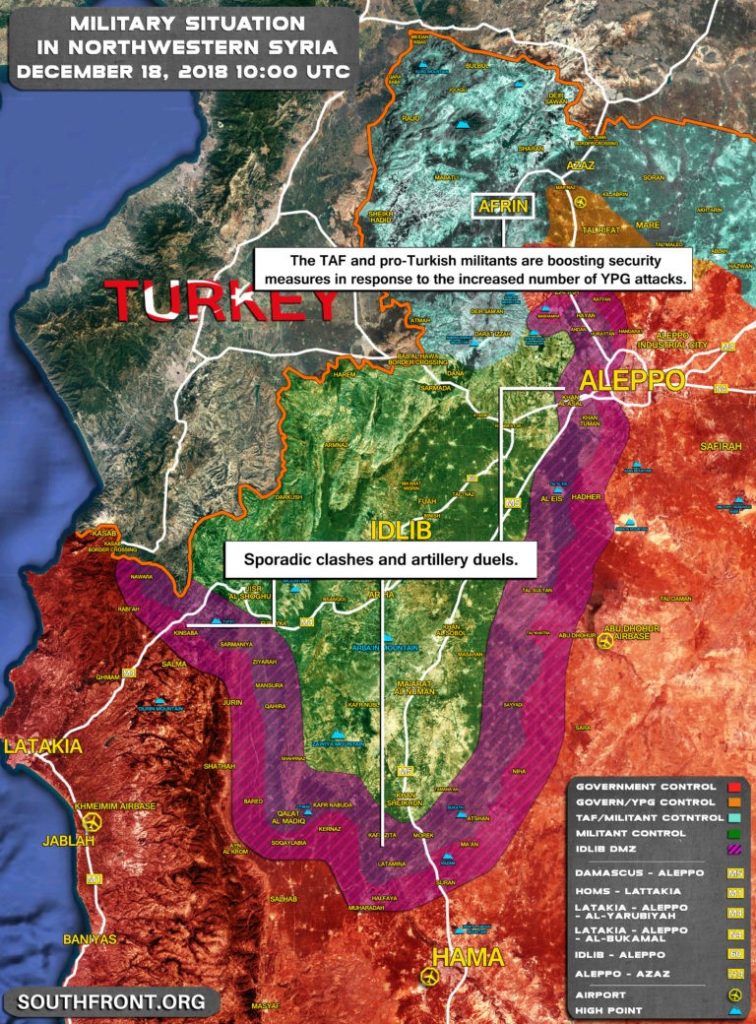
the Russian Air Forces on the terrorists’ positions, and in the spring of 2019 a larger operation by the Syrian Army. This, however, for reasons still unclear was halted without significant gains. Than the fights increased once again since mid-July, which though only yielded limited gains for Damascus, seems to be part of a major plan to end this pocket in cooperation between Turkey, Russia and Syria.
The Idlib pocket is, however, in one of the most complex ones and several aspects has to be held in view while assessing it, especially from Turkish point of view. First of all, from all other parts of Syria during the fights since 2016 the terrorists who refused to put down their weapons were offered the chance to pull back here. Which many did. At that time the Damascus viewed it the best possible – still not ideal – solution, since that managed to minimize the damage in all contested areas and squeeze the armed groups to one isolated pocket. By 2018 that resulted in a massive convulsion of organizations in Idlib, some directly supported by Ankara, and some on every terrorist watchlist in the world. Damascus hoped that seeing this cause lost many of these fighters would put down their arms and either escape via Turkey or surrender, while also the outer support would stop and no more foreign fighters would come. This proved to be wrong as Turkey kept providing support for them.
The Turkish support and especially the Russian reaction to it is a very delicate and complex matter. Turkey’s main interests are not in Idlib specifically, but in the north of Aleppo, where it illegally imposed its presence under the “Euphrates Shield” mission. The main objective is not necessarily to annex territories directly, but to create a buffer zone under its control, which Ankara wished for since 2011. With the war progressing the content of this claim changed and gained a very specific aim, to keep the Kurdish dominated Syrian Democratic Forces (SDF) groups, practically the PKK from northern Aleppo. Also in time as local council and pro-Turkish groups are put in charge, this zone would be ideal to pour all the Syrian migrants from Turkey, who by now cause serious tensions. While Idlib and the once dearly held allies there are not major issues for Ankara, once that falls the negotiations will inevitably turn to the north of Aleppo. Or in other words, the presence in northern Aleppo is only defendable as long as Idlib is still pending. But there is a much bigger problem with Idlib. An enigma with so far no solution.
Idlib in now a hotbed of all kinds of terrorist organizations, many of them are being foreigners. There are amongst them Uyghurs from China, all kinds of European citizens from various origins, Caucasians, Central Asians, Turks, Turkmens and all kind of Arabs. Though there are no reliable numbers, here we are talking about a highly heterogeneous group somewhere between 10 and 50 thousand people – not counting their families with them -, some of them are child soldiers and the majority not being Syrian. And here comes the problem. When the Syrian Army liberates this province, which is only a matter of time, what shall be done with these people? Obviously the Syrian Army cannot exterminate them all, since that would be such a massacre it would cause international retaliation. The other extreme would be to let them continue living there, since they entered the country illegally and obviously they pose a major concern for the national security. So the answer has to lay somewhere in between. But obviously not many of them wish to leave now, as in their own countries they would face criminal charges. One possible way would be repatriation, where their countries of origin would guarantee safe passage to home and no capital punishment in any case. Yet even in this case they would have to end up in prison in most cases, which would be a major human rights concern. And the biggest problem of all is how to deal with the former child soldiers. This is such a hot topic that no one like even to think about it, and therefore the continuation is the unconfessed preferable choice for most countries.
From Turkey’s point of view, however, this is an even bigger problem, since any form of evacuation would go through it. Unlike how they went into Syria, the fighters would come out in massive numbers in a short period of time. And from here there are no good options for Turkey. If Ankara let them pass, it will be openly accused of smuggling terrorist abroad. If it stops them and put most in jail, then all humans rights groups will attack the country and there will be political turmoil. While stopping, but not jailing them would lead to thousands of extreme figures wondering around in Turkey freely, which is already full of similar extreme groups. One might say this is a problem Turkey created for itself, which is true, but nonetheless does not lead to solution. All this has to be understood why no one wishes to deal with this mess.
This also explains the recent remarks of Robert Ford, America’s last ambassador to Syria, who once was so active in stirring up tensions there. Back in 2011 he openly participated in rallies in Ḥamā, even helped organizing several of them, and closely befriended many terrorist leaders, like Colonel ‘Abd al-Qādir al-‘Ukaydī from the “Free Syrian Army” (FSA). Now one might regard the FSA as a so called “moderate armed oppositional group”, al-‘Ukaydī himself rejected the terrorist classification the an-Nuṣra Front, stating the it does nothing unconventional, and he also claimed to have daily and “brotherly” relations with Dā‘iš. Even during the years of the war Ford regularly commented on the Syrian situation as an unofficial spokesman of Washington, and his latest article on 29 July 2019 in the London based Saudi newspaper Asharq al-Awsat he wrote about Idlib. Which caused severe shock to the Turkish sponsored Syrian oppositional channels. The article concentrated on Idlib and practically signaled a message that Washington gave up on the groups there, saying they
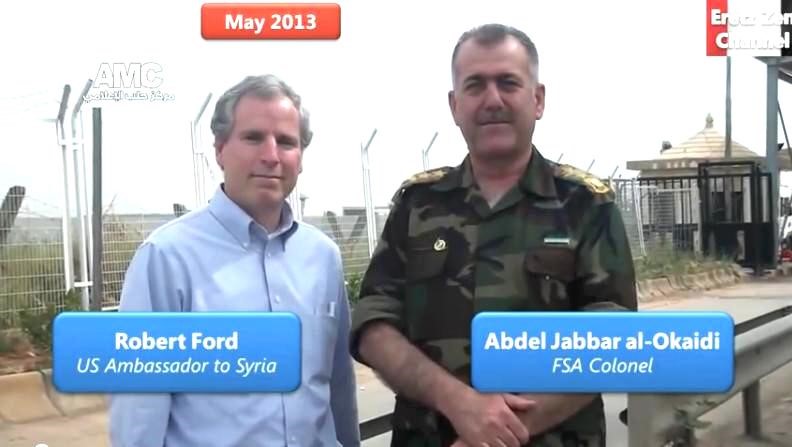
should not expect any direct involvement by the US armed forces. The message obviously was less aimed at the groups and their supporters in Turkey, but much rather to Damascus and Moscow, since the other part of the message concentrated on the eastern territories. And there the American position is absolutely diagonal to their stance on Idlib.
In any case, the the faith of Idlib is sealed as it will eventually return under Syrian sovereignty, as it was reaffirmed in the recent round of the Astana negotiations, which ended on 2 August. All three guarantors, Russia, Turkey and Iran strongly confirmed the aim for Syrian territorial integrity and that in time Idlib should be freed from all terrorist organizations. Progress on that matter might seem catastrophically slow, yet recent reports suggest that behind the scenes there is actual cooperation and the Syrian Army’s gains might not be huge, but are very significant.
Finally the question should be asked, why Russia is turning a blind eye to Turkey’s prolongation of the Idlib matter and why does it not demand more resolute action from Ankara. Since Russia put so much effort on its presence in Syria and the militant many times attacked its base from from Idlib, one might assume they would do everything to force Turkey into action. It should be understood, however, that while Syria is important, Moscow now thinks regionally and sees a much bigger picture. In one hand it understands Turkey dilemma with the evacuation from Idlib, while on the other hand extremely happy with Ankara now. Turkey just took all the political pressure from Washington and purchased the S-400 air defense system. And also partnered in the oil pipeline projects to the Balkans. Finally, and that is where Iran’s stance is more understandable, it left the door open for further trade with Iran. Therefore Russia sees a bigger picture transforming into its favor, in which Turkey is and important asset now, while Idlib is a minor nuisance.
On the way to Kurdistan?
The other main concern for Damascus is the matter of the areas on the left bank of the Euphrates, now dotted with illegal American military bases. Estimates suggest the number of American troops – mostly by hired private companies – there to be around 3500 training and supporting the SDF forces. The American Air Force also holds total control of the airspace over the area. This military presence is augmented by a smaller French force. Regardless of Trumps statements made in December 2018 that total American withdrawal is imminent, it is not only not progressing, but by Ford’s article it is clear that the US is not about to go anywhere. Quite to contrary, it tries to boost it presence, but since direct troop transfer now difficult with more pressing issues at hand and their troops already spread dangerously thin in the region, Washington tries to pull allies into that project. Germany was the first target, but it rejected the proposal in early July 2019. Than came Belgium, since it sent special forces there in 2017, but so far Brussels seems hesitant. That is because while Trump wished this folder to be closed before the elections next year, the establishment seems extremely unwilling to give up this hold. The official reasons are, as echoed by Ford, the wish to prevent Dā‘iš for reappearing, to support the Kurdish autonomy there, and to prevent Iranian presence there.
It should be understood first, that even though the picture is put simplistically as everything over the Euphrates is Kurdish and under SDF-American control, that is not the case. First of all in a number of places the Syrian Army is in control, like in the cities of al-Ḥasaka – the provincial capital – and Qāmišlī. In most areas civilian control even now is managed by Syrian state authorities, while the relations between the SDF authorities and Damascus are very random and unreliable. Ethnically as well, unlike Iraqi Kurdistan or some eastern regions of Turkey, in this part of Syria Kurds are not
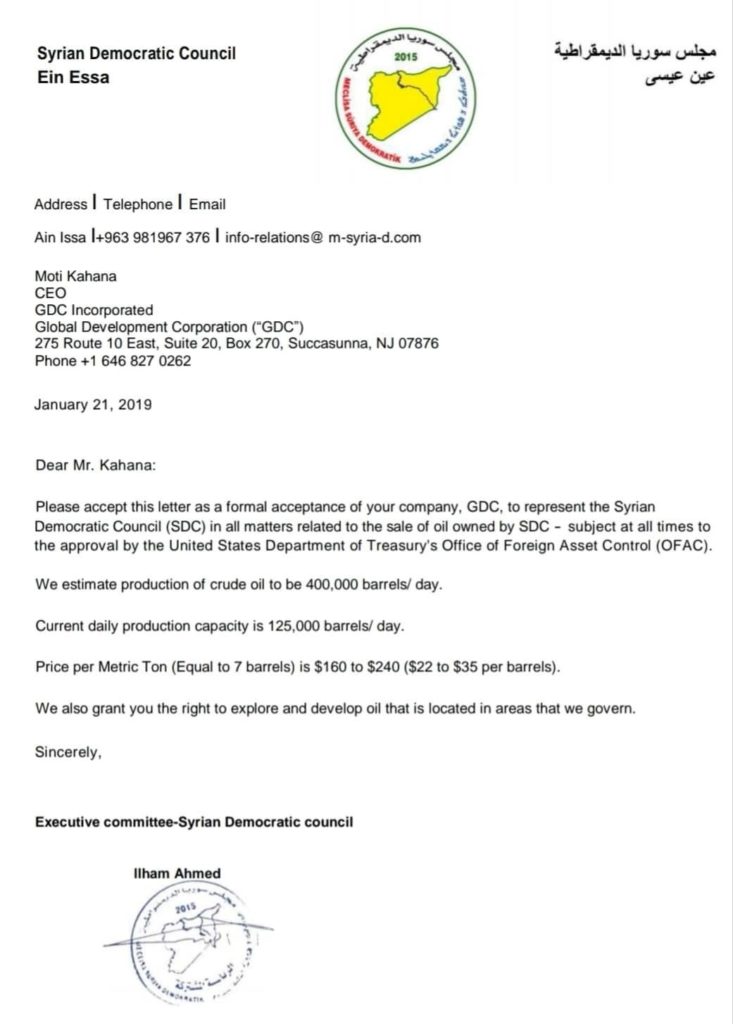
Moti (Mordechai) Kahana is an American-Israeli businessman, for long involved in the war on Syria. He financed senator John McCain’s support visit to terrorist groups in Syria.
making up a pure majority. Even after massive attempts by some Kurdish elements to chase away other ethnic communities, there are still very few places where they came to be a majority. Therefore a Kurdish autonomy here is not only against the Syrian constitution and something unprecedented, but immoral and clearly unviable as a great part of the local population is clearly against it. And it should be added that Ford’s claim, by which Washington is not after partition, but supports federative model here is a clear violation of international norms. Since it is direct interference with the internal affairs of a sovereign state.
The claim, that by such presence the US is preventing Dā‘iš to reappear is cynical and only serves as a moral cover for the illegal occupation. Aside from the statements of Trump himself that the US created Dā‘iš – intentionally or unintentionally-, what Hillary Clinton also admitted Washington has a very dirty role in the whole fight against this organization. Dā‘iš was expanding in Syria until Russia got involved, and the US many ties bombed the Syrian positions around Dayr az-Zūr, enabling the terrorist group to gain more control and the city almost fell to them. More than that in 2017 it was known even for the American press that in the eastern areas the new SDF and US-allied forces are made up by former Dā‘iš components and allies. Therefore Washington has such a negative record on Dā‘iš in Syria that it should be the last one to fight against it.
The suggestion that American presence is important there to prevent Iran from taking hold is also outrageous, thought probably that is the part of the explanation with the biggest amount of honesty. It is outrageous, because it is once again clearly against the international law. Whether Syria wishes to allow Iranian presence there or not, that is none of Washington’s concern, not to mention that this even has nothing to do with the original self-cleaned reasoning for this illegal occupation. Nonetheless Washington is concern about the level of cooperation between Syrian, Iraq and Iran, as Ford himself said, “this is not compatible with what America waits from Iraq.”
So it is not about the Kurds, about whom even Ford himself said in a 2017 interview to Asharq al-Awsat that the US only used them and they will pay a heavy price for trusting the Americans. And in general he is not a big fan of the Kurds, as he was openly against Kurdish independence referendum in Iraq as well. The territories are about oil, and in several ways. First of all, now documents prove that the local self-proclaimed – therefore illegal – Kurdish authorities licensed an Israeli firm to transfer and sell the oil extracted from these areas, and this way finance the local authorities. In fact that is exactly what is firmly in US-SDF hands in the east, but that is not the only way SDF is extorting money from the local population. During the summer in many occasions they prevented local farmers to sell their grain to the Syrian state, and whoever refused to sell their crops his fields were burned, as affirmed by both state and oppositional channels. The control over this area is a strong bargaining chip for Washington, since as it holds back – and steals – Syria’s own oil, it denies Syrian population in many areas from basic heating material. That serves as a pressure tool against Damascus, while also making the occupation pay for itself. It is not only a financial strike on Syria, but as an existential one, and that is why Damascus is forced to rely more on Iranian oil. That is is why it was so important to stop the Iranians tanker heading to Syria, and making Egypt close the Suez for Iranian vessels.
Kurdistan is far from reality, but the Americans need allies, and even more, some sort of moral reasoning on the ground. But the real objective is still to enforce federalization on Syria, and in due time, like it happened with Iraq, a partition of the state.
Divide and conquer!
That approach might seem cold-hearted Machiavellian, Syria is not the only part of the so called “axis of resistance” where America is busy. Recent reports in Iraq talk about increased military activity and suspicion of Americans attempts for military coup. Iran faces similar attempts, thought that is less surprising, since it is not an allies state, like Iraq. First in April Intelligence Minister Maḥmūd ‘Allawī announced the detection of a major CIA network, and by July an even bigger, more professional net was claimed to be exposed.
It is clear to see that while Trump tries to avoid any real war with Iran, probably not even understanding the significance of the matter, his inner circle clearly understand that the so called axis of resistance is getting firmer and in the long run might even pose a problem to the US in the region. Especially as certain states, like Turkey, Qatar, or even more recently Kuwait tends to stand out of the line. In fact Washington with its Gulf allies works tirelessly on that matter for some ten years and so far only achieved the opposite what they wished for. That, however, does not mean, that they are not trying.
That is why, in the bigger regional strategic chessboard the East-Syria and at-Tanaf are important. Here lay the access points from Iraq to Syria, and as long as Washington can hold them under control, it can prevent the direct Iranian land access to Syria and Lebanon, which would make the economic war on Iran even more difficult. But also at the same time these places can make the occupation self-sustaining and be an American bridgehead in the region.
America is not what it used to be
With Idlib especially, but also overall in Syria and in the region America seems to lose its influence. Simply put, it is not what is used to be. It is obvious from the reception of the Bahrain Summit, or by the reaction of Iran taking down one its drones. Even globally that sort of losing potential is noticeable, since for long it is not remembered that Washington recognized an unelected political figure as head of state, only to ditch him a few months later. Like it happened with Juan Guaido in Venezuela. Though it should be marked that the same thing happened in Syria. Since who remembers Ġassān Hītō and Aḥmad Ṭu‘ma by now? But at least there Washington did try to enforce its will by military means. This doesn’t mean that the USA ceased to be strong, but it is not omnipotent as it was in the since the ‘90s.
The remarks of Ford to Asharq al-Awsat, and repeated to al-Mayadeen should be understood in this context. After all, why does such an influential former ambassador gives signals of relinquished support for Idlib, while renewed interest in East-Syria? Considering he is not holding any official title now, his words can be understood as an open offer. In exchange for Idlib the US now announces its long-term claim from the eastern parts, therefore a word in the political process. Which is in other words the sign of acceptance that Washington lost control over Syria, especially now, that Turkey is pulling closer to Russia and Iran.
That should be a good sign for Syria and the millions of Syrians recovering from the war. Yet unfortunately the end is still not close enough and the Americans are still ready for some desperate attempts. With the Israelis they can prolong this war for long, but unmistakable conclusion is clear. Syria won the war. Not Baššār al-Asad, but Syria, which so far survived both regime change and partition.

